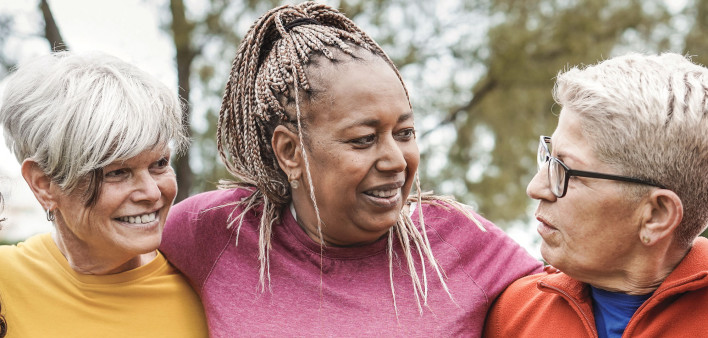Only 1 in 10 women living with HIV who qualify for menopausal hormone therapy have ever received it, according to an analysis published in the Journal of Acquired Immune Deficiency Syndrome. As with many health disparities, Black women were less likely to receive hormone replacement therapy than their white peers.
These findings, “underscore the need for provider education and menopause management within HIV care,” the study authors wrote.
Elizabeth King, MD, a professor of infectious disease at the University of British Columbia, and colleagues pulled data on age, menopausal symptoms and hormone therapy use from the Canadian HIV Women’s Sexual and Reproductive Health Cohort Study, a large study conducted in three provinces.
Between 2015 and 2017, a total of 1,244 women completed a survey on their health, 464 of whom were perimenopausal or postmenopausal. The median age was 54. Half were white, 25% were Black/African/Caribbean, 19% were Indigenous and nearly two out of three were low income. Most (87%) were on antiretroviral treatment with an undetectable viral load.
When it came to menopause symptoms, nearly half of perimenopausal or postmenopausal women (48%) had symptoms that could qualify them for hormone therapy. A quarter were undergoing early menopause and nearly two-thirds reported moderate to severe hot flashes.
Despite a potentially high level of need, just 12% of the women had ever taken menopausal hormone therapy to deal with symptoms, and only half of those (6%) were currently taking it. And while 16% of the women had contraindications for hormone therapy—such as heart disease, deep vein thrombosis or breast or endometrial cancer—that did not explain the low rate of use. Indeed, about the same proportion of women who were using hormone therapy had contraindications as those who did not.
While 98% of the women were in HIV care and saw their care team regularly, less than half (45%) had ever broached the topic of menopause with their health care providers. Even early menopause wasn’t associated with a higher likelihood of discussing it with a provider.
As seen with other health disparities, while about half of white women had discussed menopause with a provider, this fell to 37% of Indigenous women and 36% of Black/African/Caribbean women. And Black women were 58% less likely than their white peers to use menopausal hormone therapy.
The good news is that women who did discuss menopause with their providers were three times more likely to receive hormone therapy than those who didn’t. And for every increase in severity of menopause-related symptoms, women were 7% more likely to have discussed menopause with their providers.
“The disparity observed between low treatment rates and high indication hints at a gap in care for midlife women living with HIV” and “establishes the need to assess the factors contributing to such a disparity,” wrote King and colleagues.
Click here to read the study abstract.
Click here to learn more about women and HIV and aging with HIV.







2 Comments
2 Comments